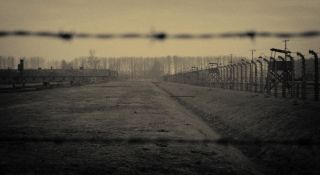Depression
In Awe of Death
Death often evokes awe, an emotion that can increase the meaningfulness of life.
Posted February 6, 2023 Reviewed by Lybi Ma
Key points
- Death often evokes awe.
- The emotion of awe immerses us into mysteries beyond our current understanding.
- An awe of death can promote healthy coping and insights into the meaning of life.
My mom died from cancer when I was 14. Although her death wasn’t unexpected, it stunned me nonetheless.
One particular moment in the days following my mom’s death stands out. The night before the funeral, there was a wake in which her dead body was laid in an open casket so mourners could say their final goodbyes. For various reasons, I did not want to see my mom’s body, and I awkwardly tried to avoid it. Our priest – a good friend of mine as well as my mom’s – must have noticed. He slowly walked up to me and, tenderly, asked if I’d like to go with him to see my mom one last time. He took my hand into his and we made our way. I believed I was supposed to feel sad and maybe even angry, and I felt those emotions as well. But, as I gazed at my mom’s dead body, what I most felt was awe.
Dacher Keltner’s recently released book “Awe: The New Science of Everyday Wonder and How It Can Transform Your Life” most surprised me with an emphasis on how often death evokes awe. In a study of 2,600 narratives coming from 26 countries, as described in the book, stories of death and awe were common. In a notably vulnerable demonstration of this, Keltner – the pioneering Berkeley psychologist most responsible for leading the way for a new science of awe – tells a story in his book similar to my own. As his beloved brother, Rolf, lay dying of cancer in front of him and his family, Keltner recounts:
“I felt small. Quiet. Humble. Pure. The boundaries that separated me from the outside world faded. I felt surrounded by something vast and warm. My mind was open, curious, aware, wondering.”
Keltner defines “awe” as “the feeling of being in the presence of something vast that transcends your understanding of the world.” Given this definition, it’s easy to see why death so often evokes awe. When I stood in front of my mom’s dead body, for instance, I felt dumbfounded by questions: “Where did my mom go?” “What does life mean?” And, “What is eternity?” These vast mysteries went well beyond anything my 14-year-old mind (or any mind) can comprehend, but my wondering led me to develop curiosities and eventually gain insights that have affected the rest of my life. Of course, I wish my mom had lived much longer. At the same time, I know I wouldn’t be the person I am today – in a positive sense – if I hadn’t had to face her death as I did.

This connection between death and awe is, at least in part, why so many people become so fascinated by the morbid. For example, dark tourism may enable individuals to feel awed and to probe essential issues of life, death, sacredness, and meaning from somewhat of a distance. I have led courses in the psychology of the Holocaust, for instance, including trips to Holocaust sites in Europe, and rarely have I seen students so absorbed or affected by phenomena being studied as when we directly encountered the overwhelming memorials of death we visited.
As discussed in Keltner’s new book, about 20 years of research on the emotion of awe reveals many unique positive effects. For example, awe diminishes our sense of self, humbling us in the presence of something beyond us. Awe immerses us in mystery, as we try to accommodate what we’re experiencing in the present with what we previously thought. Physiologically, awe can bring tears to our eyes, chills to our bodies, and goosebumps to our skin. All of these research findings help to explain what many people experience when faced with death.
Based on this new thinking death and awe, then, we all might do well to keep in mind the following.
- People react to death in many different ways, none of which need to be judged as “better” than others. We may feel sad, angry, or afraid, or we may feel awe. All of this is okay. Death is hard enough to cope with without putting expectations on how we should feel.
- One of the effects of awe is to bring people together. If we feel awe in the face of death, we can share this with others, and allow the experience to draw people into a community of shared grief. The interpersonal connection and the ways in which this impacts us may be powerful.
- An awe of death often leads to questions about great mysteries about the meaningfulness and sacredness of life. We would do well not to push these questions away because they make us uncomfortable, but rather to embrace them and allow them to, with time, form us. As Parker Palmer wrote, “standing closer to the reality of death awakens my awe at the gift of life.”


